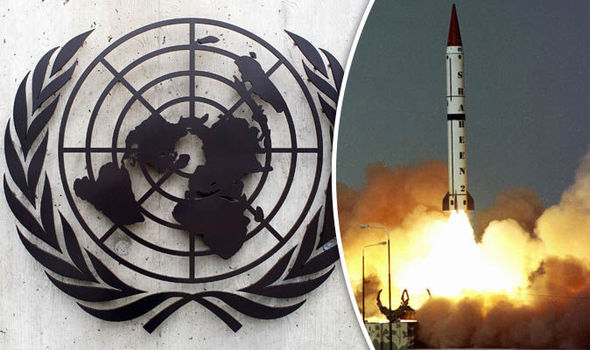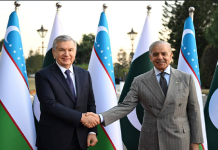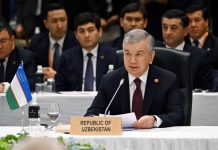By Dr. Majid Khan/ Uzair Ahmad Tahir
In March 2024, the United Nations Conference on Disarmament (CD) held a critical seven-week session in Geneva, leaving questions over its effectiveness and future. Established as the world’s primary multilateral forum for negotiating disarmament, the CD has achieved major milestones, including the Biological and Chemical Weapons Conventions, the Nuclear Non-Proliferation Treaty (NPT), and the Comprehensive Nuclear-Test-Ban Treaty (CTBT). Despite its legacy of progress, especially notable during the Cold War, the CD now faces a paralyzing deadlock that threatens its credibility and relevance.
It is a matter of fact that for 15 years, the CD has failed to make substantive progress. Consensus-based decision-making, once a source of unity, has now become a stumbling block as member states push for divergent priorities. While some nations advocate for a focus on nuclear disarmament, others prioritize banning fissile material production or establishing security guarantees for non-nuclear-weapon states. Additional proposals call for regulating arms development in outer space. Yet, these priorities clash rather than compromise, and there has been little appetite among members for the give-and-take necessary to break the stalemate.
In 2009, a brief surge of optimism led to a consensus on a program of work, yet that agenda was never realized. Today, the CD faces a “critical juncture,” as UN officials have termed it, with member states considering alternative forums for disarmament dialogue. The potential to lose momentum on disarmament initiatives and an increasing risk that like-minded countries might look beyond the CD has become a real concern.
Recognizing the stakes, the United Nations convened a high-level meeting in 2023 to address ways to revitalize the CD, stressing that membership in the forum is a privilege, not a right. The consensus rule, though, should not allow a single nation to halt progress indefinitely.
With the disarmament agenda hanging in the balance, the CD has a limited window to reaffirm its agenda and embrace renewed negotiations on crucial issues. The session in Geneva could be pivotal, with a unique General Assembly meeting in July aimed at taking the disarmament agenda to the UN’s broader membership.
The urgency of the 2022 session was underscored by momentum on other disarmament tracks, including the successful NPT Review Conference and intensified focus on nuclear security. UN leaders and CD members had urged the forum to seize the opportunity, warning that continued inaction could spell irrelevance.
The stakes for disarmament extend beyond the CD, as nuclear proliferation and regional tensions intensify worldwide. Recent Nobel Peace Prizes awarded to groups advocating for nuclear disarmament highlight the catastrophic humanitarian impact of nuclear weapons and underscore the importance of witness testimony in revealing the devastation wrought by nuclear attacks.
With disarmament movements gaining traction globally, as seen in the 2017 Nobel Peace Prize awarded to the International Campaign to Abolish Nuclear Weapons (ICAN) for its efforts to ban nuclear arms, momentum is building for change.
In 2024, the Nobel Peace Prize was awarded to Nihon Hidankyo, a Japanese survivors’ organization, for its tireless advocacy against nuclear weapons. As Nobel committee chair Jorgen Watne Frydnes noted, survivors of the Hiroshima and Nagasaki bombings bring “indescribable” suffering into public consciousness, reminding the world that such weapons must never be used again.
Today, nuclear-armed states are modernizing their arsenals, while others seek entry into the nuclear club. This push is most evident in regions like the Middle East and Asia, where nuclear threats fuel political tensions.
In the Middle East, Iran’s curtailment of International Atomic Energy Agency (IAEA) inspections has raised concerns over nuclear ambitions, leading Israel and Saudi Arabia to consider military and nuclear countermeasures. Meanwhile, North Korea’s missile tests heighten security fears on the Korean peninsula, prompting South Korea to contemplate its nuclear program amid rising regional instability and China’s assertive stance.
In Europe, Russia’s nuclear threats during the Ukraine conflict have underscored the dangers of using nuclear capabilities as “insurance” against foreign intervention. Russia’s nuclear rhetoric has sought to deter Western support for Ukraine and casts doubt on the reliability of non-proliferation agreements.
The 1994 Budapest Memorandum, in which Ukraine surrendered Soviet-era nuclear weapons in exchange for security guarantees, has been effectively undermined by Russia’s actions. This breach erodes the credibility of security assurances offered to non-nuclear-weapon states (NNWS) by nuclear-armed states (NWS), endangering the foundational bargain of the NPT, which hinges on mutual commitments to disarmament and non-proliferation.
The escalating nuclear crises expose a broader global divide, affecting international cooperation on disarmament and straining the NPT framework. Addressing the 2023 UN General Assembly, Secretary-General António Guterres emphasized the pressing need for unity as political polarization hampers the disarmament process.
While the NPT calls for NNWS to abstain from nuclear weapon development in exchange for NWS commitment to gradual disarmament, the expansion and modernization of nuclear arsenals by NWS have complicated these efforts.
The rising threat posed by nuclear weapons necessitates decisive action from international bodies, particularly the CD. The CD must seize this “tide in the affairs of men,” as Shakespeare wrote, and act to prevent the proliferation and escalation of nuclear threats.
Only through sustained multilateral cooperation, revitalized forums, and genuine commitments to compromise can the world address the nuclear danger. Failure to act now could mark the beginning of a new era of nuclear uncertainty—one that the international community can scarcely afford.






